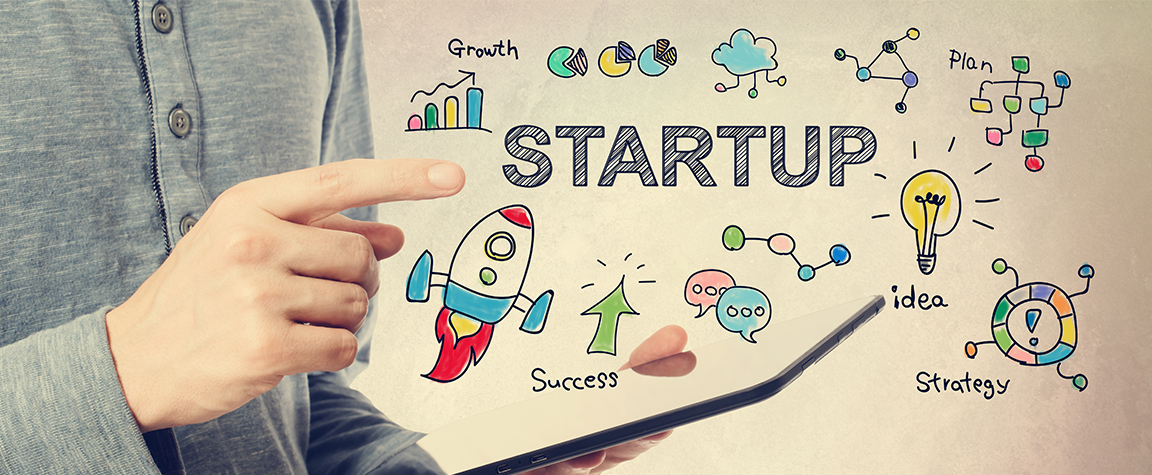Starting a business from the ground up requires a lot of planning. From renting a space, hiring employees, merchandising; all part of a long list of tasks that must be completed prior to launching a small business. One of the most important steps you cannot afford to neglect is design.
Design is fundamental for successfully branding and differentiating your business. In fact, it is the first facet of your brand your customers experience. Within seconds, customers form perceptions and impressions of your business strictly based on your startup’s design and branding. Thus, design is a vital contributor in attracting customers to your business.
To help you get started on the right track with design, I have compiled a design checklist for startups. This comprehensive list will guide you through what needs to be done to build a solid brand identity and a more engaging customer experience for your startup.
Logo Design
Getting a logo designed for your startup should be one of the first things you accomplish as it will function as the core of your brand. Successful logo design not only communicates what your business does, but it also helps differentiate it from the competition. A well designed logo makes your startup appear established and professional. Additionally, a remarkable logo will persuade customers to engage and trust your business.
Remember that your business logo is an important branding element that should go on every piece of marketing your customers interact with (signage, marketing collateral, packaging, website, social media, email marketing, advertising, etc.). Therefore, make sure not to skimp on logo design. Branding gives your startup the unique opportunity to make great first impressions.
Related: Why Small Businesses Need Strong Logos
Related: The Logo Design Process
Related: What Makes a Logo Great?
Business Cards & Stationery
Business cards are still relevant in today’s digital age for several reasons. They are a very effective and inexpensive direct marketing tool for in-person meetings. They are far more personal than sharing contact information digitally. They are a great way to communicate what your company does and provide contact information. They also demonstrate your startup is serious and prepared. A well designed business card can make a lasting impression of your brand among prospects or connections.
Similarly, well-designed stationery aids in forming positive perceptions of your startup. You should always invest in resources that advocate credibility for your business. Having consistent branding on your business cards and stationery conveys professionalism and trustworthiness.
Related: 5 Reasons Why Small Businesses Need a Solid Visual Brand Identity
Website Design
A website is one of the most effective sales and marketing tools for your startup. No matter the size or type of business you run, a website is an essential component that provides information about your company. In addition, your website works to promote your startup 24/7, can help with lead generation and conversion, and it allows you to sell your products or services to a larger market.
You should have a website that informs your customers about the products or services you offer as well as provides your contact details. More than 80% of Americans say they do research online prior to making a purchase. Even if it’s just a one-page website, web design is an investment your startup cannot ignore.
Social Media Presence
Social media is an effective way to build relationships, promote your products or services, drive traffic to your website, generate leads, provide customer service, inform your customers, increase brand awareness, and more. Social media has the power to legitimize your brand. To create an engaging social media presence, you will need things like headers, banners, infographics, and profile images. These need to be consistent with your branding to create a more memorable experience.
Sales & Marketing Collateral
Your startup may need marketing collateral to help convert customers. These items may consist of a menu, a brochure, a catalog, a postcard, or a sales presentation. Regardless of what your startup needs for marketing materials, these items should tell your story and differentiating factors. Keep in mind that these too influence customer perceptions and trust, so these items must be consistent with all of your branding and feature a strong aesthetic.
Related: 5 Reasons Why Small Businesses Need a Solid Visual Brand Identity
Internal Marketing Collateral
When it comes to the materials your employees consume, they are equally important as the kind your customers see. These may consist of handbooks, posters, guidelines, reports, memos, etc. Whatever they may be, your internal marketing items should be designed thoughtfully and beautifully. Just as your marketing collateral helps customers build trust in your business, creative and thoughtful internal marketing collateral can give your employees confidence and a sense of pride. Team members devoted to your brand make excellent brand advocates.
Packaging
If your business sells a physical product, it will likely need packaging. Packaging design is as important as the product itself. According to Joshua Conran “your product's packaging is meant to communicate a purpose: what your brand stands for and what it means for your customer.” Successful packaging design can potentially grow your startup’s sales by conveying quality, improving the customer experience, and reducing buyer’s remorse.
Signage
Signage lets the public know where your business is located, of course. It is also a great way to advertise by letting customers know about what you do, promotions, and encourage people to walk in. Your startup will most likely need to create signs for outdoor spaces (store front), indoor spaces (inside your shop), and for publicity (trade shows).
Advertising Design
Advertising is an essential part of your promotional strategy. It gets the word out, it lets people know your startup exists, and it brings people to your business. Startups can place ads in a variety of platforms including traditional media (newspapers, magazines, television, billboards, etc.) and digital media (display ads, social media ads, web banners, etc.). Keep in mind that in a crowded market, simplicity is the antidote. In other words, make your advertising design straightforward, memorable, and true to your brand.
Email Marketing
Email is a powerful and still relevant way to engage your customers. Email marketing keeps your subscribers informed about company news, promotions, tips, and much more. Email marketing can also be more effective at converting customers than social media.Additionally, it’s economic and cost effective, it can be personalized, and most importantly it’s measurable. Your website should include an email signup to grow your subscriber list. Focus on designing emails to welcome new subscribers and create a template for a periodic newsletter. Consistent delivery keeps your startup top of mind among recipients, even if open rates are low.
Video Marketing
Give your startup the attention it deserves with a vibrant advertising campaign such as video marketing. In fact, 71% of marketers agree that video consistently outperforms any other content. Video gives your startup the opportunity to connect with customers by allowing them to get to know your brand. Video is particularly more important for small businesses. Focus on creating a video that tells your story, your startup’s purpose, and how it’s different from others. Stories are far more memorable than facts alone.
Related: 5 Benefits of Video Marketing for Your Small Business.
Final Thoughts on Design
If you are preparing to launch a startup, you will need to create all of these assets sooner than later. As you have read in this article, design is a very powerful tool for growing your company. It can contribute to building trust and credibility, influence customer perceptions, differentiate your startup from the competition, and attract customers to your business.
If you liked this article, subscribe to receive the Aesthetic Philosophies newsletter.

